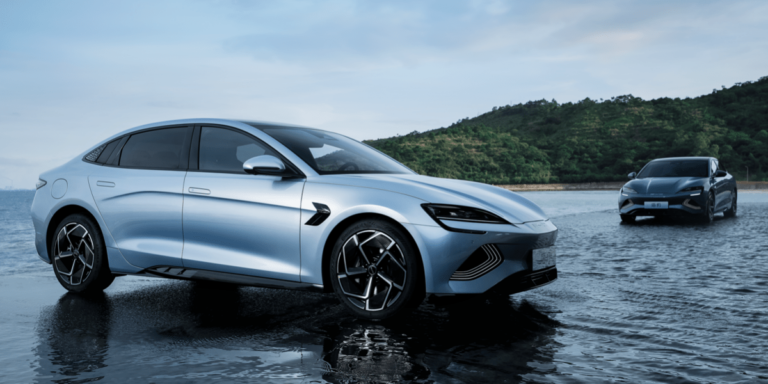
According to data released by the China Association of Automobile Manufacturers (CAAM), sales of New Energy Vehicles (NEV) in China stood at 653,000 units last month. This represents a year-on-year increase of 34.8 per cent and a 24.4 per cent increase compared to February.
Within these 653,000 New Energy Vehicles, the pendulum swung clearly in favour of battery-electric cars in March: BEVs sold 490,000 units, while plug-in hybrids accounted for 163,000 units, just under a quarter of all New Energy Vehicles – for a long time the ratio was more like 50:50. Fuel cell vehicles, which also belong to the NEVs, increased by 27 per cent year-on-year, but with 50 vehicles in March they did not play a significant role.
With 490,000 battery electric cars, sales of this type of drive were higher than ever before in the first quarter or even in the first half of the year. Here, the market development in April will be very interesting to see whether BEV sales continue to rise as strongly as in Q1 or whether there is a slight stagnation – however, the figures will hardly be comparable with April 2022, as there was a strict covid lockdown in numerous major cities in China at that time.
Across all powertrains, 2.45 million vehicles were sold in China in March, 9.7 per cent more than a year earlier and 24 per cent more than in February. Thus, the 653,000 New Energy Vehicles accounted for a market share of 26.6 per cent, the 490,000 BEVs for 19.9 per cent.
The manufacturer with the most sales of both New Energy Vehicles and BEVs in March was once again BYD. The Chinese carmaker sold 207,080 NEVs in the month, which is a clear record for the first quarter. By comparison, in the best Q1 month to date, March 2022, BYD sold only 104,878 units – March 2023 represents a 97.5 per cent increase. BYD’s New Energy Vehicles also included commercial vehicles, but with 206,089 units, passenger cars made up the bulk. Of these, 102,670 vehicles were battery-electric, so BYD sold 103,419 PHEV cars. This means that 63 per cent of all 163,000 plug-in hybrids came from BYD.
Tesla sold 88,869 vehicles manufactured in China in March, including exports. This is 35 per cent more than in March 2022 and 19.5 per cent more than in February. A breakdown of sales in China and exports is not yet available. What is clear, however, is that in March the Model Y was the best-selling SUV model in China with 54,937 units – ahead of the BYD Song (40,114) and Yuan Plus (27,907).
Behind BYD and Tesla, GAC Aion continued its positive development: GAC’s NEV brand achieved sales of 40,016 units in March, which is another significant increase on the record result of 30,086 NEVs from February. Compared to March 2022, GAC AIon almost doubled its sales (+97 per cent). In Q1, GAC Aion sold 80,308 vehicles – almost half of which were sold in March alone.
Li Auto has also developed positively in recent months. After ups and downs, the trend is now upwards: With 20,823 NEV sales in March, it was only the second month ever after December 2022 that Li Auto was able to sell over 20,000 vehicles. March represents a year-on-year increase of 88.7 per cent and a 25 per cent increase on February.
Nio also still managed five-figure March sales with 10,378 units. The manufacturer’s most important model is now the Nio ET5 with 6,437 sales alone. Neta also came in above the 10,000 mark with 10,087 NEVs, but this is only an increase of 14 vehicles compared to February. In March 2022, there were 12,026 NEVs, so March 2023 represents a 16 per cent decline.
While Nio and Xpeng, another internationally known EV start-up from China, have long had comparable monthly sales figures, Xpeng now regularly has to get in line behind Nio. This was also the case in March, when Xpeng delivered 7,002 vehicles. The Geely subsidiary Zeekr (6,663) and Leapmotor (6,172) are close behind.